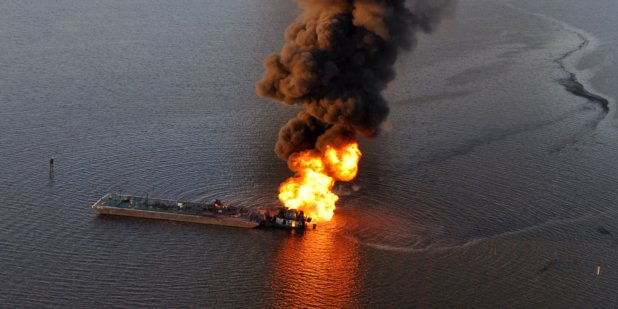- About
- Topics
- Picks
- Audio
- Story
- In-Depth
- Opinion
- News
- Donate
-
Signup for our newsletterOur Editors' Best Picks.Send
Read, Debate: Engage.
A long time ago Holland's inhabitants heated their houses with wood and peat. Then, in the late 19th century, coal came up as a heating source. The mines in the province of Limburg (part of the Ardennes region) delivered enough coal for the large cities and for the new steel industries that were constructed in the small town of Ijmuiden (near the North Sea, nowadays Tata Steel). If there was a shortage of coal, mines in Germany (Ruhr Gebiet) and Belgium (Ardennes) were close by. Trains brought the coal to cities like Amsterdam, Utrecht, Rotterdam, The Hague and to harbours like Den Helder (Navy harbor) and Flushing.
Coal remained the top fuel source for ships until the 1950s, then Diesel took over. For houses and industrial buildings in The Netherlands coal remained important until the 60's when natural gas was found in the Dutch province of Groningen. This huge gas field is the main heating and cooking source upon today. For the heavy industries (steel and electric power) coal is still the number one fuel. But there is a change coming up.
Since some 30 years gas (and some oil) has been found in the Dutch part of the North Sea. About 140 platforms are producing natural gas which is transported by pipe lines to the shore nearby the city of Den Helder. There the North Sea gas is mixed with the Groningen gas and transported to the distribution centres all over the country as well to pipe lines towards Germany, Belgium, France and even Italy. Nowadays, extra gas is imported from Russia (transported through Ukraine) and also mixed with the Groningen and North Sea gas to get the preferred quality.
But importing gas has a political problem because the relationship with either Russia as Ukraine is not stable. And pumping away from the gas stock in the Groningen field brings more and more tiny earthquakes, which lead to damage to the houses and other buildings around. Therefore and because of the need to downsize the amount of CO2 in the atmosphere, Holland is forced to change its energy policy.
There still is enough gas for a period of 25 years in both the Groningen field as the North Sea. In the North Sea is more gas available but new fields are small and production will cost more than now is called 'responsible'. Because oil prices (gas prices are coupled) are too low to invest in new gas fields.
That's the reason the minister of Energy – Mr. Kamp – suggested earlier this year to support oil companies to start drilling in those minor fields, so being able to stop using Groningen gas (which would stop the earthquakes) and being less dependent from Russian gas. But the oil companies are not much willing to open up new gas fields in the North Sea.
An alternative is more wind force as power supply. Already three large windmill farms have been positioned in the Dutch part of the North Sea but it's not enough to shut down all seven coal using power plants. And – switching to electricity as the main source of heating and cooking apart from lighting – the production of electricity should be expanded. But wind farms are not the most reliable systems. Wind is not always available and the generators in the mills produce small amounts of power. This power has to be transported to the shore (or, with wind farms on land to the distribution centres) and this transportation mean loss of power in the channel. Therefore another idea is the use of solar panels.
The Dutch government likes to support citizens to buy solar panels to produce their own electricity but there is not enough money available for subsidizing. Now owners of large groups of rental houses are subsidizing their tenants to provide these houses with solar panels. But not because of a changed government-policy... It's more because of a win-win situation between renters and tenants. Another alternative is tidal energy. Already three experimental sites are supplied with this kind of energy production. The generators in the seawaters are working because of the streaming of the tide. They might be able to supply the nation with possibly 50 percent of its power needs in the years ahead. The forecasts are promising.
Coal will not be forbidden in The Netherlands. It will remain in use for the steel industry and the power plants as long as alternative kinds of energy are not strong enough to provide all buildings in the country with power (and heat). And blacksmiths will use coal. But not in open fire places in houses or on barbeques.
